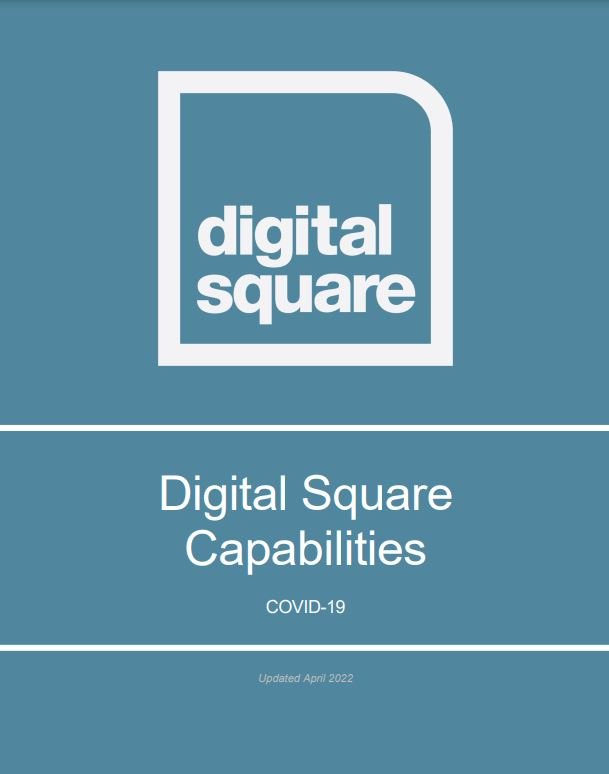Since the start of the COVID-19 pandemic, Digital Square has been supporting coordination, collaboration, and communication with partners to increase visibility into how digital tools are being adapted to support countries’ pandemic responses. Our support has helped those engaged with vaccination efforts to plan and deploy data and digital tools effectively. With our partners, we’ve helped balance the sometimes-competing imperatives to act quickly while also strengthening existing systems, addressing long-term sustainability, and improving preparedness for future pandemics.
On this page, learn about several different resources and projects related to vaccination and pandemic preparedness.
Digital Square projects supporting COVID-19 response and routine immunization systems strengthening
Digital Results Improve Vaccine Equity and Demand (DRIVE Demand)
The Rockefeller Foundation and PATH announced the Digital Results Improve Vaccine Equity and Demand (DRIVE Demand) project, a two-year, US$5 million partnership with PATH’s Digital Square initiative to deploy and expand the use of digital health tools in Mali, Tanzania, Thailand, Uganda, and Zambia. Through DRIVE Demand, the partners aim to help ministries of health utilize digital technologies to understand, track, and influence demand for immunizations. Ultimately, it will support target countries’ effort to reach national COVID-19 and routine immunization targets, while strengthening data-driven health systems in Asia, the Caribbean, and Sub-Saharan Africa.
Digital Innovation and Pandemic Control (DIPC)
Deutsche Gesellschaft für Internationale Zusammenarbeit (GIZ), together with GIZ actors from the field of digitalization and health launched the Digital Innovation and Pandemic Control (DIPC) project in 2020 to bring digital health technical expertise to countries to create more pandemic-prepared health systems. The DIPC project provided an award to Digital Square to partner with ministries of health and other key stakeholders from November 2022-2024 to scale the use of digital tools for COVID-19 vaccination planning, deployment, and monitoring.
The DIPC project will create models for improved and more sustainable pandemic-prepared health systems with a focus on immunization workflows, working with three partner countries: Ghana, Malawi, and Tanzania. The project will carry out the work by focusing on three primary workstreams.
Featured Digital Square articles about covid-19
Resources
Digital Pandemic Preparedness Assessment (DPPA) Tool
Access the DPPA tool (V2).
The Digital Pandemic Preparedness Assessment (DPPA) Toolkit was commissioned by Deutsche Gesellschaft für Internationale Zusammenarbeit (GIZ) to the GFA Consulting Group on behalf of the German Federal Ministry for Economic Cooperation and Development (BMZ), and with support from Digital Square. The tool aims to provide a systematic methodology to identify the need for digital tools that integrate with countries’ existing digital ecosystems while also modernizing their overall pandemic preparedness. First published in 2021, the tool has now been tested and refined in assessments, which were carried out in five countries (Ivory Coast, Ghana, Nigeria, Sierra Leone, Togo) in 2021-2022. After completing these assessments, GIZ updated the Toolkit to Version 2.0 and completed a series of analyses and reports.
Primer on Digital Solutions for COVID-19 Vaccination Service Delivery
This resource provides examples to planners, funders, and implementers looking to utilize digital health tools for pandemic and post-pandemic response. Created to guide digital investments in support of the COVID-19 vaccination response, the Primer showcases case studies that highlight the use of data and digital health tools to support immunization service delivery.
Taking Stock: Lessons and next steps for COVID-19 digital health investments in LMICs
In this webinar we explored lessons learned and opportunities emerging from digital health investments made to support COVID-19 vaccination service delivery in low-and-middle income countries. The webinar included insights from countries on adapting and deploying digital solutions for COVID-19 vaccination efforts, and introduced a tool to support stakeholders in adapting and scaling digital solutions for routine immunization efforts as well as emergency responses.
Map & Match
The USAID-funded Map & Match project helps countries, donors, implementing partners, and the global digital health community at large to leverage and adapt existing digital tools in response to the COVID-19 pandemic.
Past Webinars
Recommendations for addressing systemic root causes of data backlogs | August 30, 2023
Watch here | Find the slides here
Can image-based ai meaningfully impact covid-19 response in low-resource settings? | June 16, 2020
Private sector digital adaptations for covid-19 response | April 30, 2020
Watch here | Find the slides here
MANAGING THE GLOBAL COVID-19 PANDEMIC WITH HEALTH INFORMATICS | April 7, 2020
Watch here | Find the slides here
GLOBAL GOODS ADAPTATION FOR COVID-19 RESPONSE | March 30, 2020
Watch here | Find the slides here
RE-UTILIZING PEPFAR INVESTMENTS DURING THE COVID-19 RESPONSE | March 26, 2020
Digital Square COVID-19 Capabilities
This document outlines Digital Square’s capabilities relevant to COVID-19 response.
Find the document here.
(Updated April 2022)
Digital Square COVAX Rollout Capabilities
This document outlines Digital Square’s capabilities relevant to COVID-19 vaccine rollout, and specifically to COVAX.
Find the document here.
(Updated April 2022)
This table was developed to highlight adaptations of existing global goods to address COVID-19
Digital Square has also developed a table highlight global good adaptations related to COVID-19 vaccine introduction.
OPENHIE COVID-19 Task Force
The OpenHIE COVID-19 Taskforce began in April 2020 in response to the interoperability and data sharing needs of the global community. The endorsed Terms of Reference are:
Identifying and collating information relating to data standards and exchange relevant to the COVID-19 response
Identifying gaps in and establishing standards for data exchange priorities
Provide documentation and guidance (to both the global good community as well as proprietary software tools) to improve adherence to these standards
Ensure that rapidly deployed solutions can be integrated into the national digital health architectures









